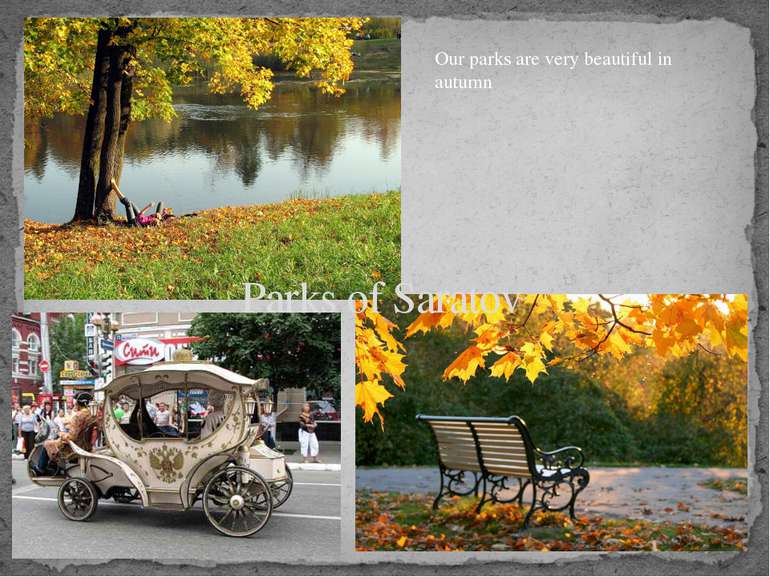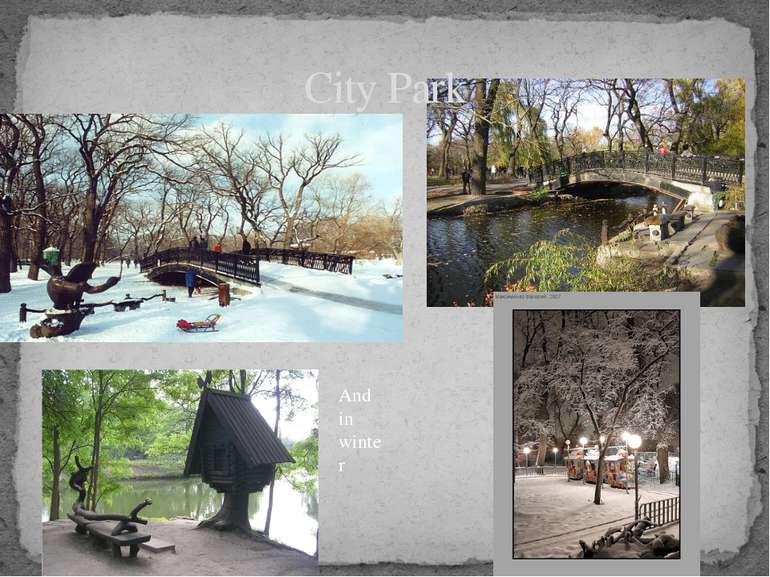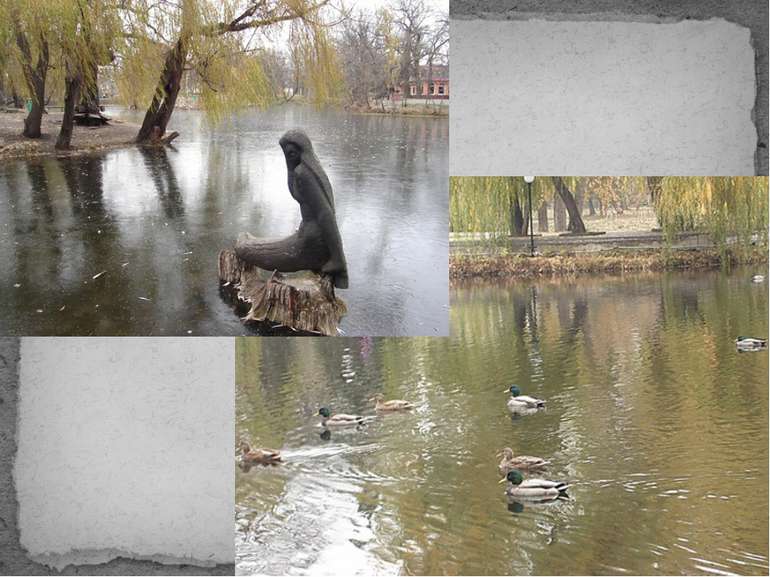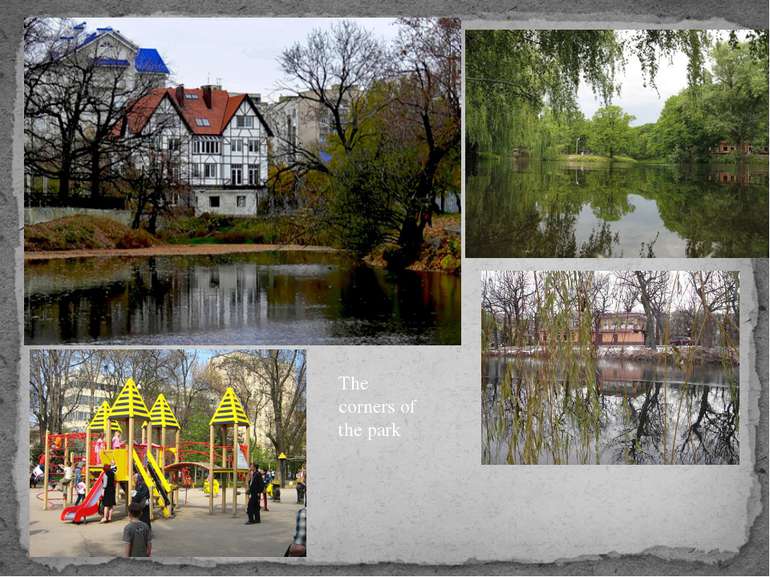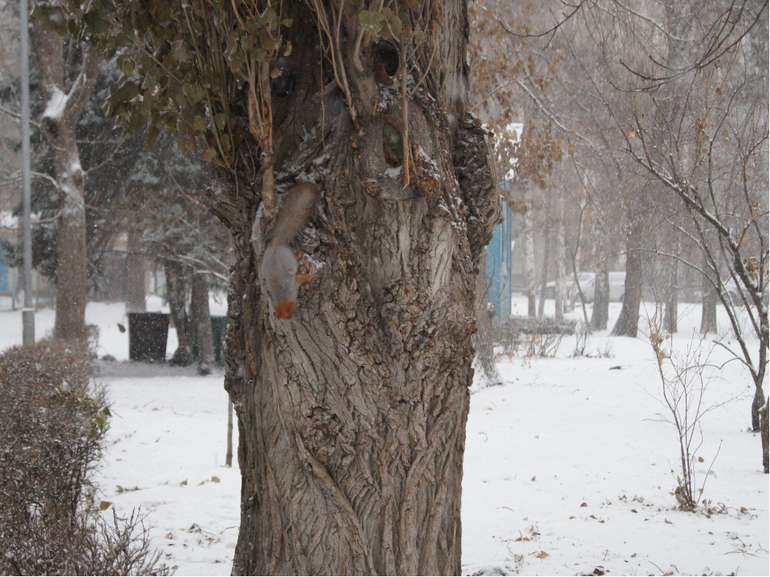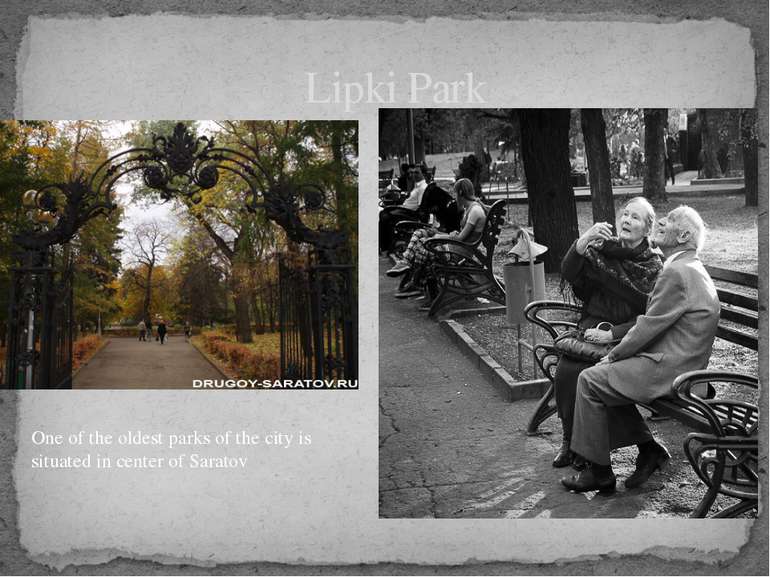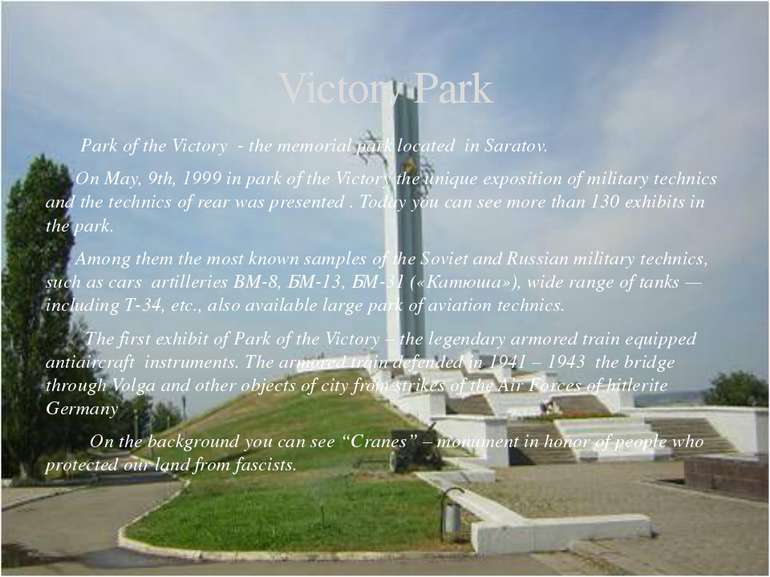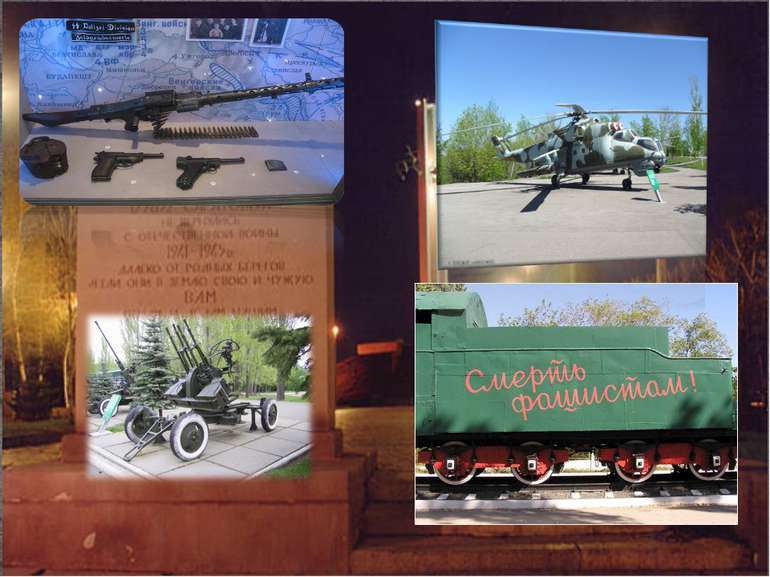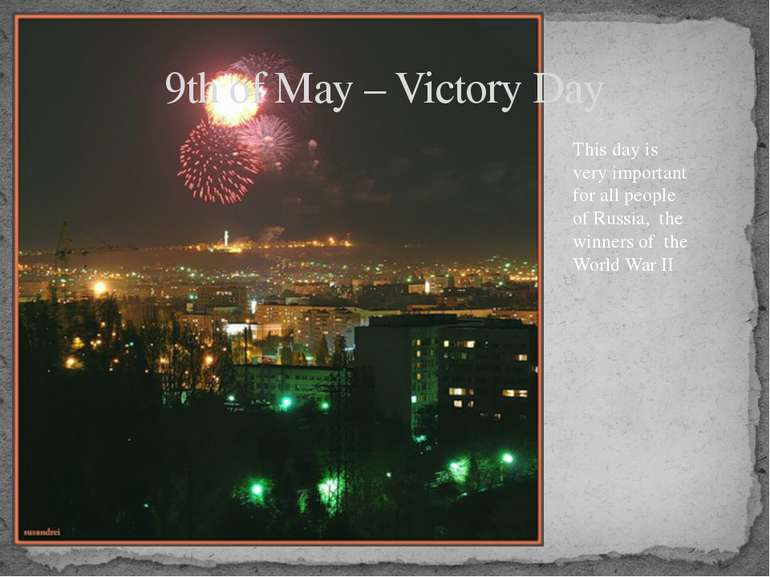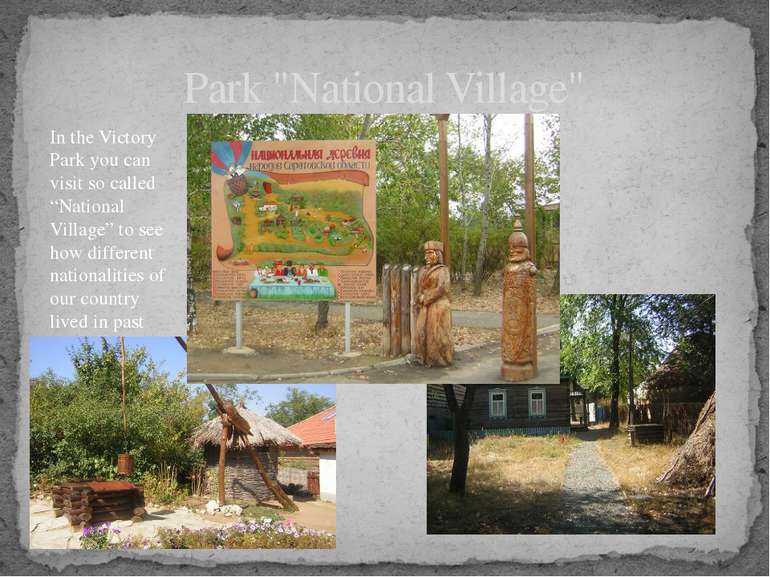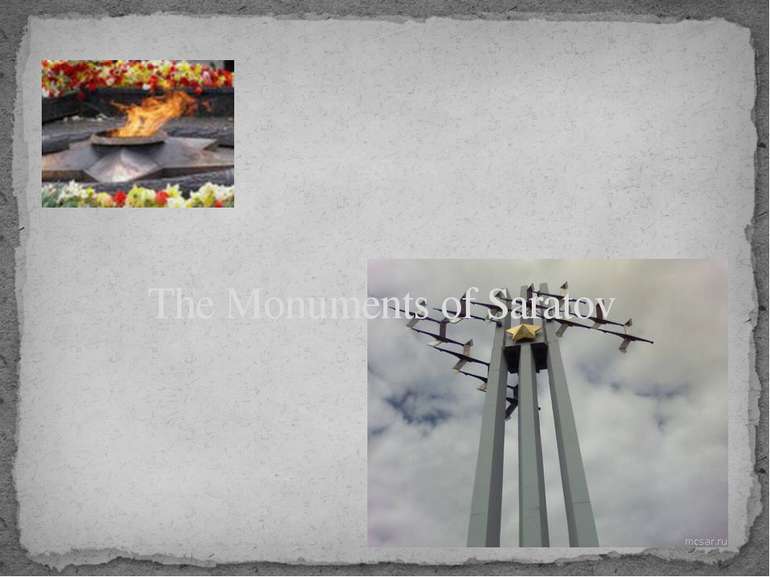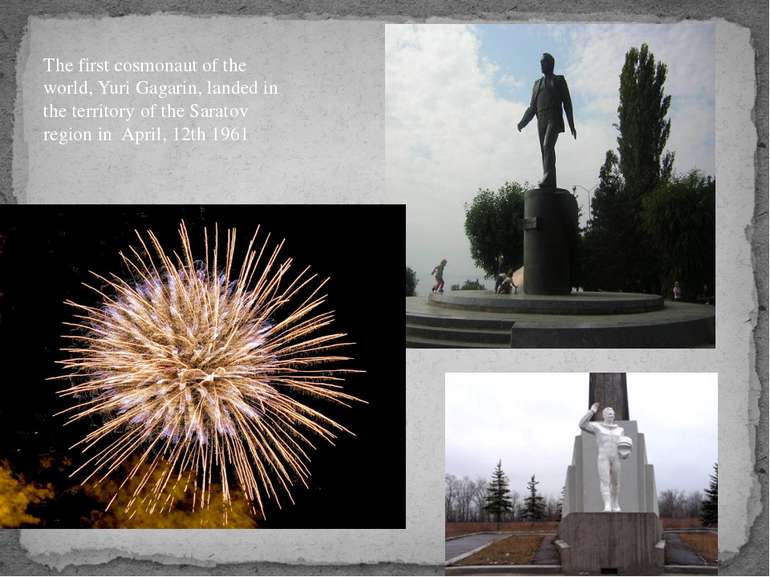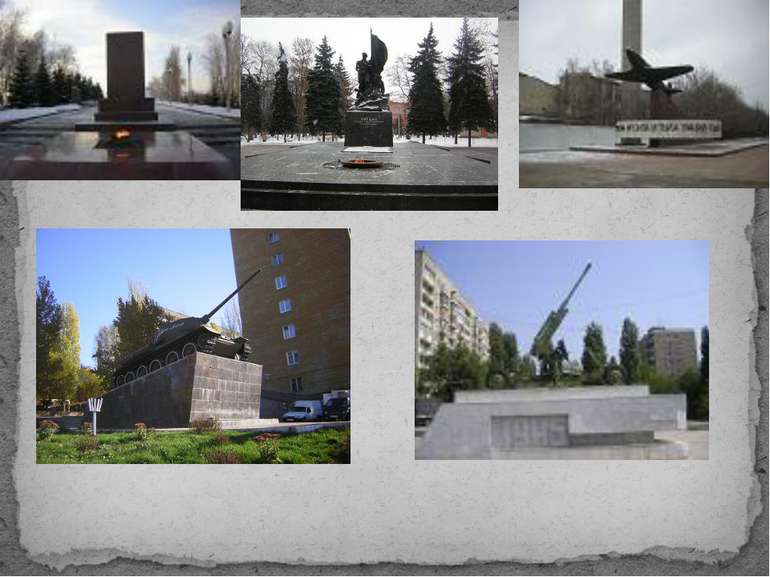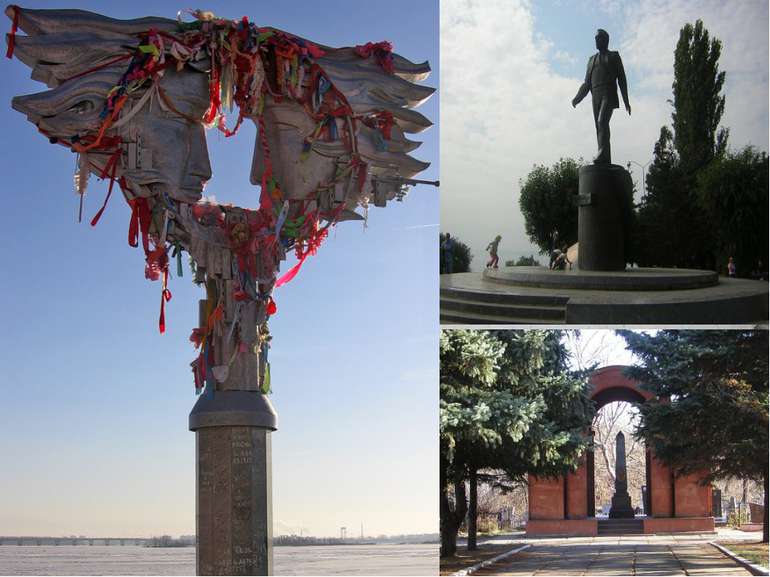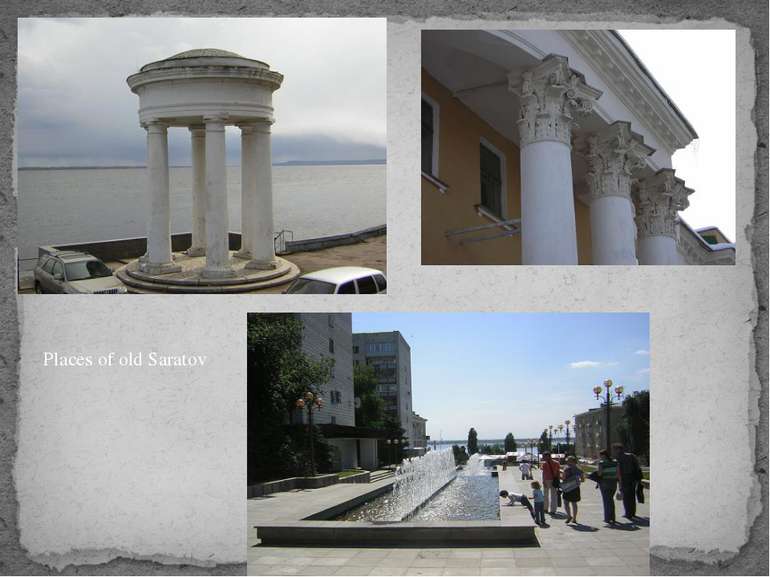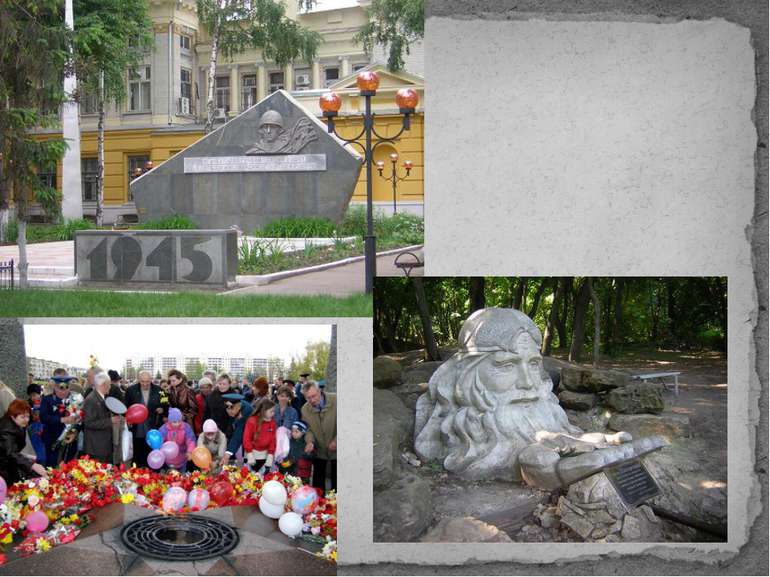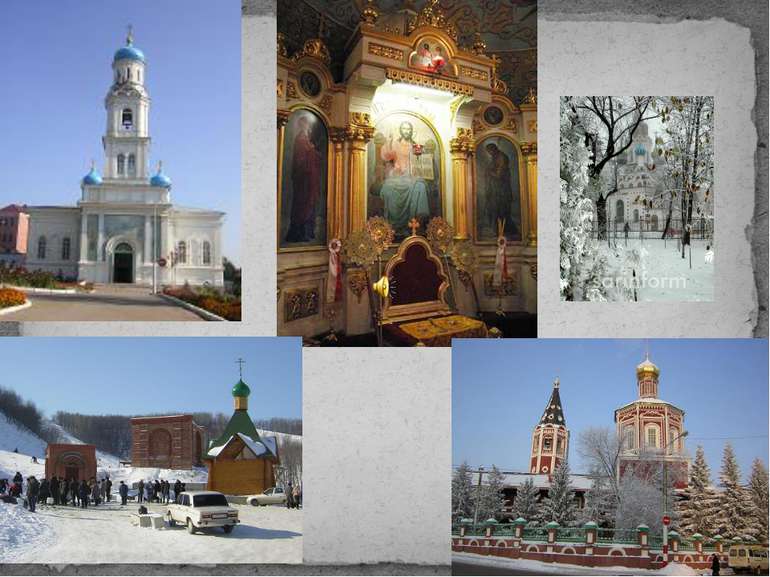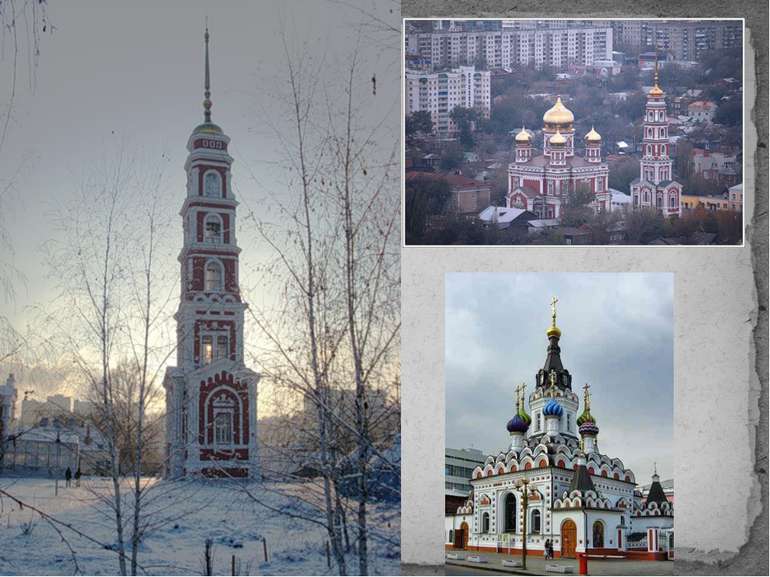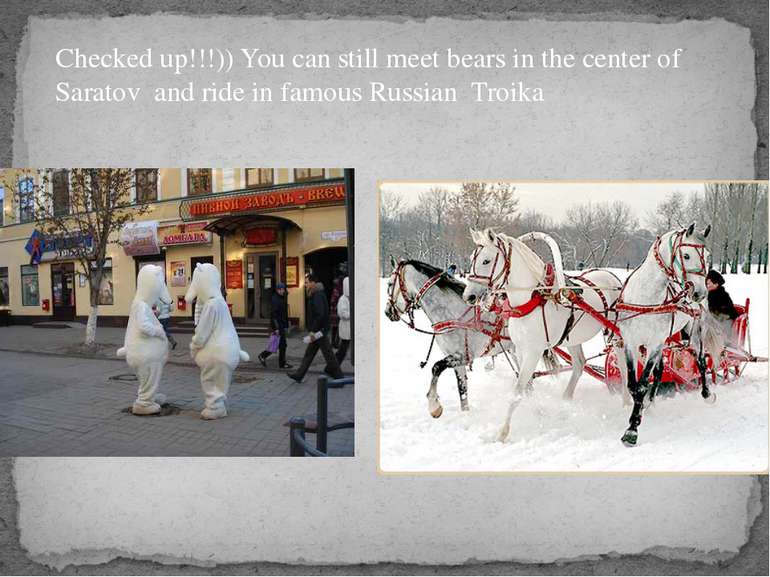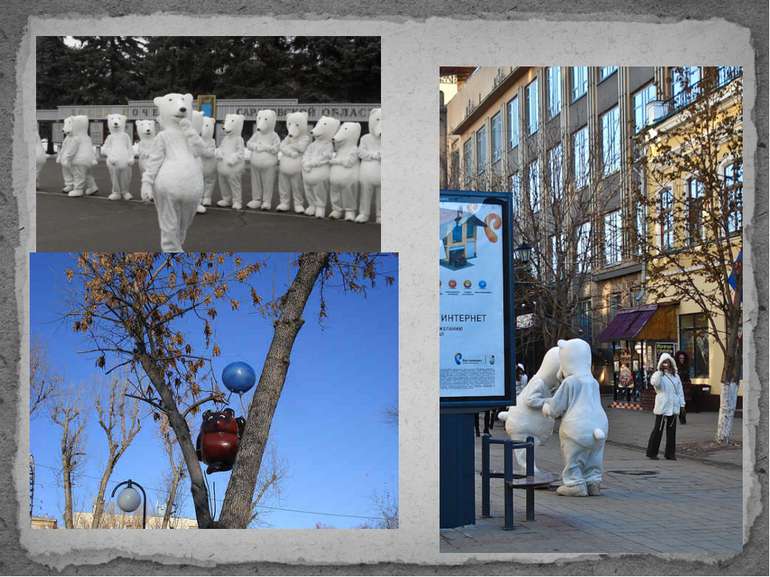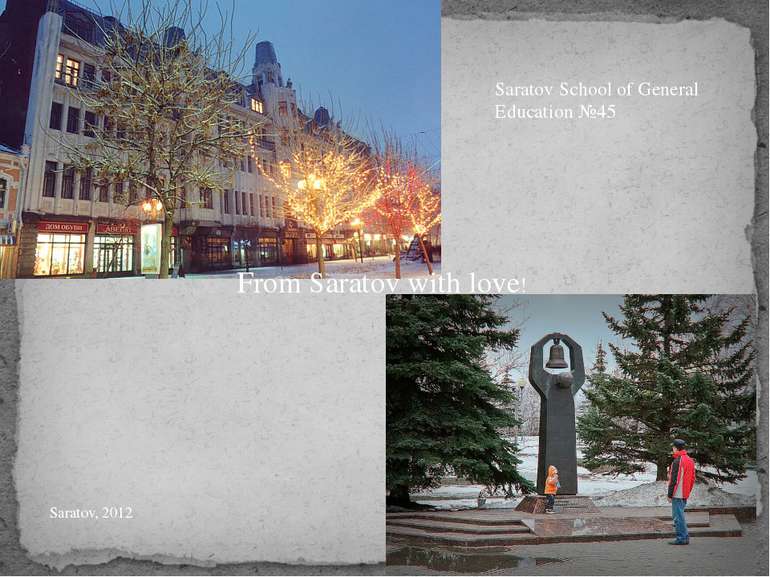Презентація на тему:
Saratov
Завантажити презентацію
Saratov
Завантажити презентаціюПрезентація по слайдам:
Saratov (Russian: Сара тов) is a major city in southern Russia. It is the administrative center of Saratov Oblast and a major port on the Volga River. Population: 837,831 (2010 Census preliminary results). In addition to ethnic Russians, the city also has many Tatar, Ukrainian, Jewish and German residents.
Saratov is in a location which has long been inhabited by successive cultures. Historians generally consider Ukek, a medieval outpost of the Golden Horde, as the likely ancestor to today's Saratov. According to legend, Gelonus, a Scythian city that was the northernmost colony of the Greeks, was thought to have been sited near the present-day city. Gelonus is mentioned in the Sixth Book of the Histories of Herodotus, according to which the city was burnt to the ground by the Persian Emperor Darius in 512 BCE. The modern city traces its history to the reign of Tsar Feodor Ivanovich, who constructed several settlements along the Volga River in order to secure the southeastern boundary of his state. During the summer of 1586, the fortress of Samara was founded, followed by Tsaritsyn in 1589 and finally Saratov, located midway between Samara and Tsaritsyn, in 1590. Saratov was built at the insistence of count Grigory Zasekin on the right bank of the Volga river. All three forts were located in a region where the Volga and the Don flow nearest one another, which allowed the Duchy of Moscovy to secure both rivers and to ensure control over the recently annexed khanates of Kazan and Astrakhan in the years following the Livonian War. The future town's buildings were first constructed in the upper reaches of the Volga, a full year prior to the in situ foundation of Saratov. In the spring of 1590, workers disassembled the constructions, marked each log, and delivered the "town" to its destination via the river. This method allowed the buildings to be rapidly erected in just a few weeks. Begining
The name Saratov may derive from the Turkic words Saryk Atov, which mean ‘hawks' island’. Another version of the name origin is Sary Tau (Сары Тау), meaning "yellow mountain" in the Tatar language. There are sandy hills around the city. What do this mean – "Saratov"?
This is the engraving of Saratov in XVII century by Adam Olearius, German scientist and traveller
By the 1800s, Saratov had grown to be an important shipping port on the Volga. The Ryazan-Ural Railroad reached Saratov in 1870.In 1896 (26 years later), the line crossed the Volga and continued its eastward expansion. A unique train-ferry, owned by the Ryazan-Ural railroad, provided the connection across the river between the two parts of the railroad for 39 years, before the construction of a railway bridge in 1935. A great event in cultural life of Saratov was opening of the first art museum in Russia in 1885. The founder of the museum was Bogolubov, the grandson of A.W.Radishchev. XIX century
During World War II, Saratov was a station on the North-South Volzhskaya Rokada, a specially designated military railroad providing troops, ammunition and supplies to Stalingrad. Until the end of the Soviet Union in 1991, Saratov was designated a "closed city", that is, strictly off limits to all foreigners due to its military importance. This was due to the presence of a vital military aircraft manufacturing facility in the city. XX century
German community Saratov is an important city in the history of the Volga Germans. Until 1941, the town of Pokrovsk, today Engels, located just across the Volga from Saratov, served as the capital of the Volga German Republic. The ethnic German population of the region numbered 800,000 in the early 20th century, with some people whose families had been there for generations. The Russian czars had invited German immigration in the 18th and 19th centuries to encourage agricultural development in the area. Saratov Bridge across the Volga, formerly the longest in the Soviet Union The Volga German community came to include industrialists, scientists, musicians and architects, including those who built Saratov's universities and conservatories. After the German invasion of the Soviet Union during World War II, the government forcibly expelled more than half of all Volga Germans to Uzbekistan, Siberia and Kazakhstan; few ever returned to the Volga region, even after rehabilitation. Others were expelled to western Europe after the end of the war. Beginning in the 1980s, a large portion of the surviving members of the ethnic Germans emigrated from the Soviet Union to Germany. Reminders of the once prominent place of Germans in the city remain, with the Roman Catholic St. Klementy Cathedral (seat of the historic Diocese of Tiraspol) on Nemetskaya Street the most notable. The building was converted into the children's cinema "Pioneer" during the Soviet period.
The Saratov region is highly industrialized, due in part to the rich in natural and industrial resources of the area. The region is also one of the more important and largest cultural and scientific centres in Russia. Saratov possesses six institutes of the Russian Academy of Sciences, 21 research institutes, 19 project institutes, as well as the Saratov State University, the Saratov State Socio-Economic University, the Saratov State Technical University and many scientific and technological laboratories attached to some of the city's large industrial enterprises. Saratov is served by Saratov Tsentralny Airport, and also hosts the general aviation airfield Saratov West. The aerospace manufacturing industry is served by the Saratov South airport. Modern Saratov
Universities of Saratov Saratov is the city of students. There are more than 12 universities in our city, and a lot of Russian and foreign students study here.
Sokol (“Hawk”) – soccer club of the city. He plays in the Russian Second Division. Also we have a basketball team “Autodor” and an ice hockey team “Kristall”, who play in the Russian Major League. The Saratov bandy club “Universal” plays in the 2nd highest division. Sport in our city
The main symbol of Saratov is Saratov Conservatory. The conservatory in Saratov was founded in 1912, and was the first provincial conservatory to be founded in Russia, after St. Petersburg Conservatory and Moscow Conservatory. Saratov was, at the time, Russia's third city. The main building of the conservatory had been built in 1902 by architect Alexander Yulyevich Yagnom and originally it housed a musical school. For the opening of the conservatory in 1912 the building was reconstructed by the architect Semyon Akimovich Kallistratova. When Saratov Conservatory opened in September 1912, it immediately had one thousand students ready to begin their studies. Since 1935 the Conservatory has taken the honorary name of the tenor Leonid Sobinov. Saratov Conservatory
The Saratov Conservatory Musicians from different parts of the world come to Saratov to take part in the annual festival
Also one of the main sightseengs of Saratov is Saratov Bridge In 1921 the Head Committee for State Installations started research in this field and worked out various viable designs. It was found expedient and vital to build a motor bridge across the Volga. It was laid in March 1958 and put into commission in 1965. Saratov motor bridge was so masterfully executed that it can rival many world famous water-spanning structures. It was assembled out of large-scale ferroconcrete elements with the help of unique innovations absolutely new for that time. Nowadays, the bridge has acquired economic and industrial value for both right-bank and left-bank parts the region, and has made the lives of Saratov's inhabitants infinitely more comfortable. Saratov bridge
The bridge links the right and the left banks of the Volga. It is one of the longest in Europe (2803,7 meters)
The first wooden Trinity Church in Saratov were built in 1674-1675 year. After fire in 1684 year, Cathedral were rebuilt to 1694 year. The Cathedral was built in Moskovskoe barroko style – unique for Saratov region. It was the pride of the old Saratov, a participant of many historical events. In Soviet time, it were the one of two working churches in Saratov. Holy Trinity Cathedral
The symbol of City Park is squirrel. It makes children happy by its own fun and bright color
Park of the Victory - the memorial park located in Saratov. On May, 9th, 1999 in park of the Victory the unique exposition of military technics and the technics of rear was presented . Today you can see more than 130 exhibits in the park. Among them the most known samples of the Soviet and Russian military technics, such as cars artilleries BM-8, БМ-13, БМ-31 («Катюша»), wide range of tanks — including Т-34, etc., also available large park of aviation technics. The first exhibit of Park of the Victory – the legendary armored train equipped antiaircraft instruments. The armored train defended in 1941 – 1943 the bridge through Volga and other objects of city from strikes of the Air Forces of hitlerite Germany On the background you can see “Cranes” – monument in honor of people who protected our land from fascists. Victory Park
9th of May – Victory Day This day is very important for all people of Russia, the winners of the World War II
Park "National Village" In the Victory Park you can visit so called “National Village” to see how different nationalities of our country lived in past
The first cosmonaut of the world, Yuri Gagarin, landed in the territory of the Saratov region in April, 12th 1961
Checked up!!!)) You can still meet bears in the center of Saratov and ride in famous Russian Troika
Схожі презентації
Категорії























































